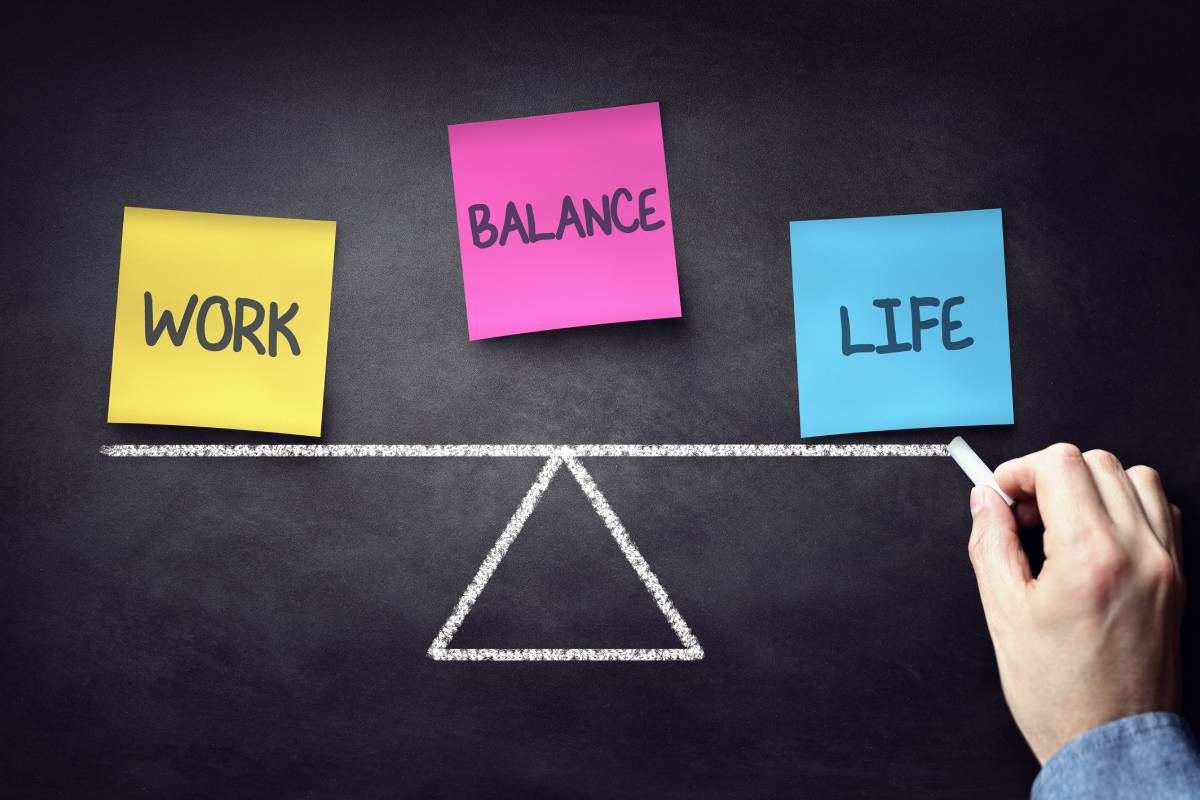Managing work life balance through prioritization, setting boundaries, and self-care to boost happiness and productivity while avoiding poor balance.
In today’s fast paced and demanding world, achieving a balance between work and personal life can feel like an impossible challenge. Many people find themselves overwhelmed, trying to meet work deadlines while maintaining relationships, personal health, and hobbies.
However mastering the art of work life balance is crucial not only for personal well-being but also for professional success.
This article will explore how to take control of your work-life balance the key elements that make a balance effective and the consequences of neglecting this essential aspect of life.
Whether you are looking to improve your own balance or seeking insights to help others understanding these principles is the first step towards creating a healthier more fulfilling life.
How to Take Control of Your Work Life Balance

Taking control of your work life balance starts with recognizing that it is your responsibility. Achieving a healthy balance requires intentional effort, planning, and sometimes sacrifices. Here are several steps you can take to manage your work-life balance effectively:
Prioritize Your Time
Effective time management is essential for balancing work and life. One of the main challenges is finding enough time for both work and personal pursuits.
The solution lies in prioritization identifying the most important tasks in both areas. While priorities vary depending on individual circumstances, common categories include work deadlines, family commitments and self care.
- Work Deadlines and Projects: Are there tasks that need to be completed immediately or by a certain date? Prioritize these work-related goals and allocate enough time to complete them.
- Family Commitments: Whether it’s taking care of children, spending time with a spouse, or visiting relatives, family obligations should also be factored into your schedule.
- Self Care: Make sure you allocate time for your own well-being, including exercise, rest and mental health activities. Often, people neglect their personal needs when focusing on work or other responsibilities.
By understanding your priorities, you can better allocate your time to focus on the most important aspects of your life and work.
Set Clear Boundaries
One of the biggest challenges in maintaining work-life balance is the blurred lines between personal and professional life especially in remote or flexible work environments.
Setting clear boundaries is essential to ensure that work doesn’t spill over into your personal time. Some strategies for setting boundaries include:
- Designating Workspace: If you work from home, set up a designated workspace. This helps mentally separate work from leisure and allows you to physically “clock out” at the end of the day.
- Set Work Hours: Establish specific work hours and stick to them. Let your colleagues and boss know your working hours and availability. Outside of these times, resist the temptation to check emails or engage in work tasks.
- Communicate with Family and Friends: Make sure the people around you know when you need focused work time and when you’re available for personal activities.
By respecting these boundaries, you can preserve time for yourself and your loved ones while still fulfilling your professional duties.
Learn to Delegate
Trying to do everything on your own can lead to burnout and imbalance. Learning to delegate tasks both at work and in your personal life is crucial for regaining control. At work this could involve:
- Delegating Projects: Trusting your colleagues with tasks or parts of a project allows you to focus on higher-priority items.
- Outsourcing Tasks: If your workload becomes overwhelming, consider hiring temporary help for non-essential tasks like administrative work, research, or customer support.
In your personal life, delegation can involve asking for help from family or outsourcing chores like cleaning or grocery shopping. By sharing the load, you can dedicate more energy to what matters most.
Learn to Say No
One of the most effective tools for managing work-life balance is learning to say no. Saying yes to everything can lead to burnout so it’s important to be selective about your commitments.
Prioritize those that align with your values and long term goals and don’t hesitate to turn down invitations or work projects that may overwhelm you.
Focus on Self-Care
Self-care is crucial for maintaining work-life balance, yet it’s often overlooked. Taking care of your physica mental, and emotional health through regular exercise balanced nutrition sufficient sleep and stress reduction techniques like meditation or yoga will improve your well-being. Focusing on self-care boosts both your health and your ability to perform well in work and personal life.
What Makes a Good Work Life Balance?

A good work-life balance is not about equal time distribution but about harmony. It’s about ensuring that you’re giving adequate time and attention to the various aspects of your life that contribute to your overall happiness and well-being.
Flexibility
A good work-life balance involves flexibility. This doesn’t mean a free-for-all, but rather having the ability to adjust your schedule when life demands it.
Whether it’s dealing with a sick child or taking a personal day to recharge, flexibility ensures that you can respond to the demands of both work and life without feeling overwhelmed.
Time for What Matters
A good work life balance allows you to dedicate time to what matters most to you. This might be family personal projects, hobbies socializing with friends or engaging in community activities.
The balance lies in ensuring that these personal priorities do not get overshadowed by professional obligations.
Mental and Physical Well being
Work life balance should contribute to your overall well-being. This means having enough time to relax recharge, and focus on personal growth, which in turn helps you bring your best self to work and life. It also means taking time to focus on your health, including sleep nutrition and exercise.
Satisfaction at Work and Life
Finally a good work life balance results in satisfaction in both your professional and personal life.
It doesn’t mean that everything will always be perfect but you should feel fulfilled in both areas and have a sense of accomplishment in your career and personal pursuits.
What Happens if You Have a Bad Work-Life Balance?

A poor work life balance can have serious consequences on both your personal and professional life. Here are some of the effects of poor work-life balance:
Burnout and Stress
One of the most common effects of a poor work-life balance is burnout. When you constantly push yourself to the limit at work and neglect personal time it can lead to exhaustion stress and burnout.
This not only affects your productivity but can also have long-term consequences for your physical and mental health.
Decline in Health
Lack of self-care and exercise can lead to health issues like weight gain, fatigue, and chronic stress. Stress hormones weaken the immune system, making you more prone to illness.
Additionally, relying on sleeping pills to manage sleep can disrupt your natural sleep cycle, causing dependency and long-term sleep problems, which further impair both physical and mental health.
Damaged Relationships
If you’re spending too much time at work and not enough with family or friends, your relationships may suffer. Loved ones may feel neglected, leading to tension and isolation.
Reduced Productivity and Performance
Ironically, working too much can lead to lower productivity. Constantly overworking leads to fatigue making it harder to focus think clearly and perform at your best.
Conclusion
A good work life balance is essential for maintaining a healthy fulfilling life. By prioritizing your time setting boundaries learning to delegate and focusing on self care you can take control of your balance.
A well balanced life contributes to happiness, health, and productivity while poor work life balance can lead to burnout, stress, and strained relationships.
Take the necessary steps today to maintain a healthy balance and your work and personal life will benefit in the long run.





